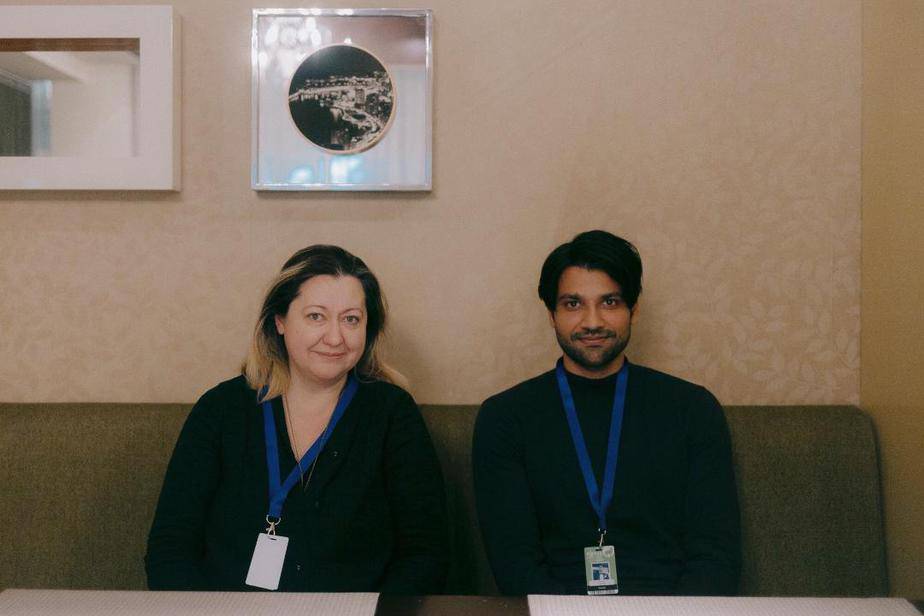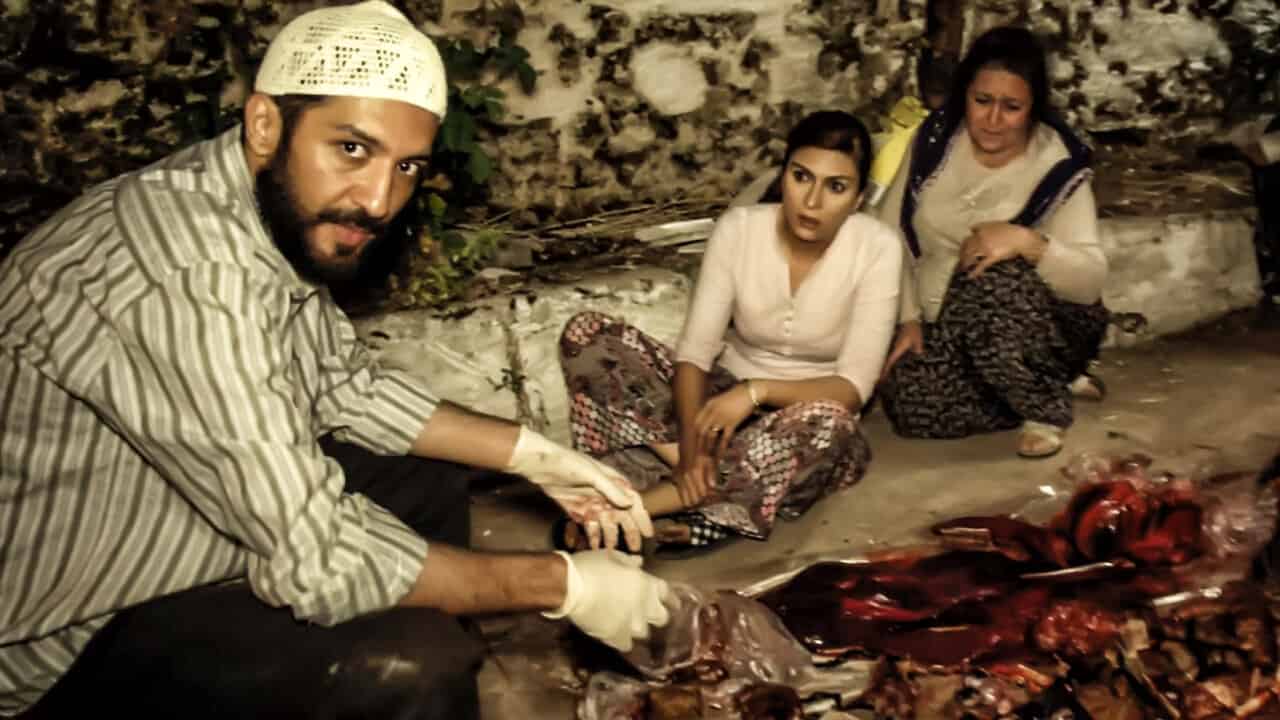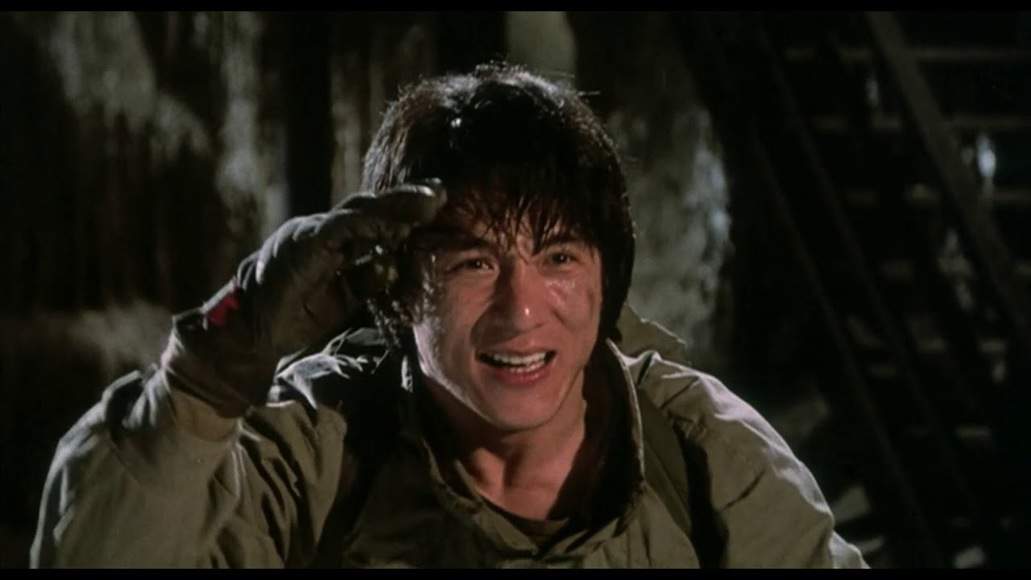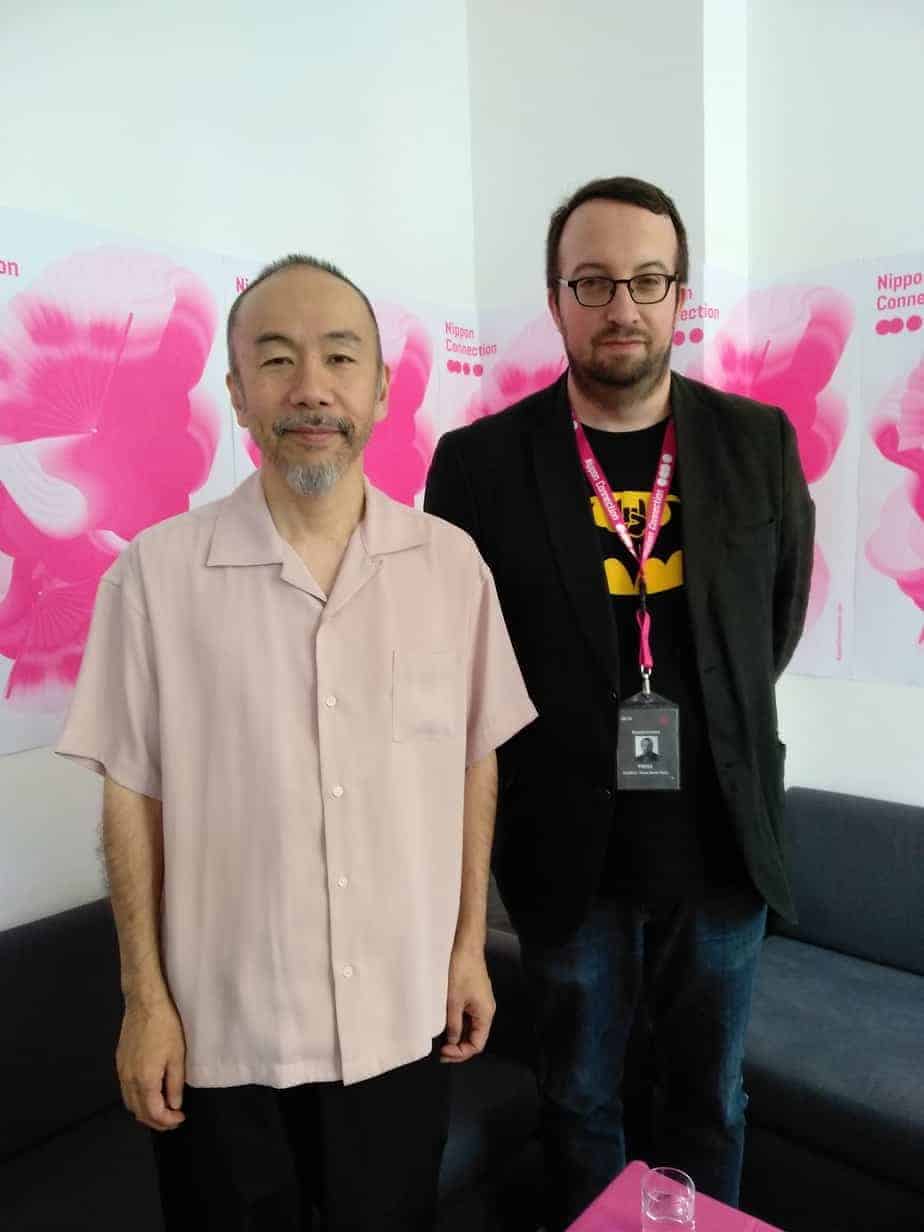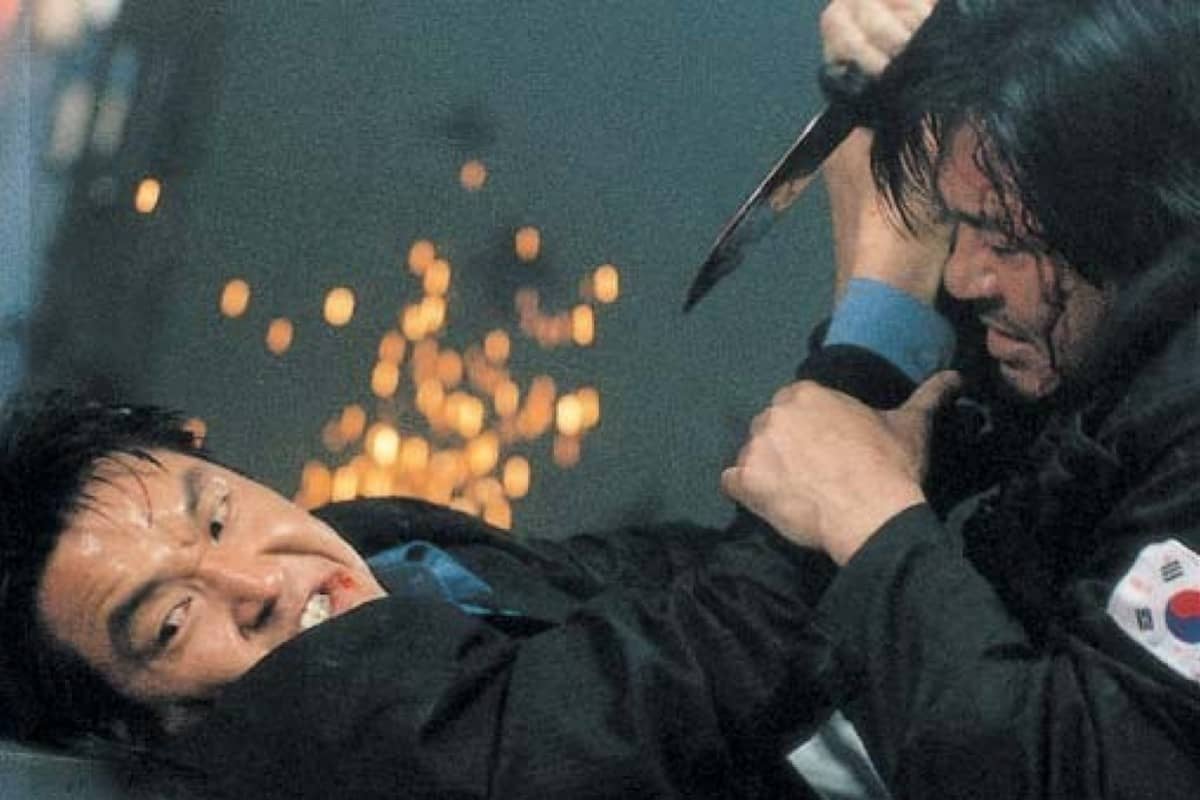With King Khan, it was very interesting because we were looking for a musician who sounded Asian. After Stefan suggested his name, I spoke to him and realized that he was born in India, but he went to Canada and then to Germany. So, he had a wonderful journey but also some really, really powerful boost of rock, especially post punk rock and underground garage rock, which was fascinating. He was also inspired by jazz and experimental music which is brilliant. He actually sent us two tracks. The last thread were some character voices, such as Anurag Kashyap, a filmmaker who was very supportive of the project. My Indian co-producer Samir Sarkar suggested a few names, and Kashyap was among them, but also Shekhar Kapur who loved the clever idea of how we were projecting the contemporary times in the story. So he came on board immediately. He was very happy to do the voice of that naughty politician (Council Member). For his character we needed a very old and sophisticated actor to play him, and Kapur, one of respected, old Indian filmmakers was the ideal choice.
And then Sarkar also suggested a name which is fascinating to all of us in India – Karan Johar, for the announcer's voice. Now, Karan Johar is primarily a very big producer and a host in India. He has basically produced one of the most outstanding blockbusters in the country. He's made a lot of money with them, and his TV show is actually one of the most famous ones in India, and it has been running for 18 years now. So that was a very interesting thing because the way he speaks is very flamboyant and charismatic, and it's not something you'd think would fit in a dystopian world like this. But ironically, it did because there is this charm in his voice. So it's very ironical that in a suppressed society like this the main voice of that city who keeps enforcing safety, sanity, sanctity, does it in a very flamboyant way. That was a very interesting mix, I think.
Let's talk about the transformative nature of power, and how easy it is to go from humble to narcissistic. You are showing that process.
You're talking about the second half of the film when 197A becomes a Godess. So for that, I had to introduce the inception of a cult first and to show how it really begins, and that it doesn't spark just like that. It's not like somebody plans to make a religion, and it happens because it never does. Usually, there is something that pushes a character to accidentally fall in that world while they are doing something very, very personal. 197A was speaking out of his guilt and he was completely being himself. In fact, he even found his feminine side during this transformation. A character who comes from a political background, who was kind of a masculine and had lovers becomes someone else on that other side. When he comes to the neighbouring world and starts reciting what he did on the stage, he finds his new identity. And then later, he finds himself in a way. So until that moment, it's a very personal journey for the character. But then what happens is that people start relating to him, and then embrace him as some sort of demigod, or a leader they need to follow.
He's somebody who's larger than life. And whenever something like that happens, such people start embracing that celebrity status. It's the inception of a cult that usually transforms either into a religion or into an alternative society. So, what we see there that particular night, in the second half of the film, is the inception of something in that world in which a person speaks about something out of complete personal loss, which transforms him in a way which, in turn makes people embrace him in a certain way. But then he starts to understand what is really happening. And then he takes it on face value which kicks off something that I think goes to a slightly cosmic level because we start seeing the stars and things coming down. I think that when we do a time jump in the film to show that this inception happened over night, it basically transformed this whole world into something much larger.
How did the score for “Schirkoa: In Lies We Trust” come to be? There is one scene in which Golshifteh Farahani starts singing a beautiful song in Farsi, which I guess is the only one not composed for the film.
There was a very interesting thing that happened during the recording for Golshifteh's character. It was the very end of the recording when we came to the scene and she was just sitting and waiting for the bus to pick her up. There was nothing in the script indicating that she was supposed to sing, but at one point when we were almost done with the rehearsal, someone suggested that she should take her bag off, and maybe start humming, because it is the first time she can smell the air without anything in front of her nose. And then when I asked her to do it, she began singing a song in her own language. And then she said she knew the song from her childhood that, in a way, is also about someone in a really very precarious position. She has just come out of the dictatorship, she's just crossed the border. She doesn't know if she'll achieve complete freedom. So she's also in a bit of fear during that time. But there is also a happiness that is kind of concealed in that trembling of her heart. So she sang that song beautifully, and it ultimately went into the final cut because we just couldn't put it away. I think it did the character justice.I think Golshifteh's voice, as well, really adds to the vulnerability of her character.
Music is definitely something which slowly became very important during the course of the film. The main composer is Sneha Khanwalkar. She worked with me on the music for almost two years. And we basically talked about a multitude of genres to work with. Initially, we were convinced that Schirkoa would be more retro, more jazz because the whole story is kind of timeless. You're not really pointing to a certain era, really. It can probably happen in any timeline. So we thought, okay, let's go retro for Schirkoa and more punk with Kataka. But then, we started experimenting and decided not to just stick to one or the other and to play a bit with trip-hop.
Music really adds to the boredom and sadness that is lingering underneath Schirkoa. So when we played with a bit of jazz a and a bit of trip hop, ultimately we landed on mixing all those genres with synth. Synth is something which Sneha doesn't get to use that much in Bollywood. Bollywood has a very distinct voice that she has to do in each movie. But she was very happy that she could play a different game for Schirkoa, because she was given a sandbox. She could really do whatever she wanted in it. And I gave her complete freedom, which she was quite happy about. So when we moved to the second half of the film, we initially tried a bit of folk and mixing it with noise and rock. And then we started mixing licensed soundtracks. So two soundtracks come from King Khan, who plays Maud character. So when we see him performing it, it is actually his songs. Okay, he sang that, he performed it and we just used it as is.
Then along came a very interesting discussion about what we should do with Argento's dj set? Because that was a real highlight of the second half of the film. We were quite thrilled about it and we tried multiple things with that, but things were not really working. I have actually listened to all Asia's music that has been released so far. And there was this track of hers called Saxodrom, which I thought was really fitting. And I threw this idea to my producers who thought it was working very well. We got Asia's blessing on the song as well.
Would you tell our readers something for the end?
Okay. That's something I was not prepared for. Yeah. I just want to say that it was a very rewarding journey. It was also a very long one because it started with me working in my bedroom on a pc without even thinking what one day, this short I was creating, and that my wife produced, will become this exciting thing. We worked on it for four years and we had no idea how it was going to turn out. It was a shot in the dark. So from that point and reaching here to world-premiere the movie in Rotterdam, it's a very emotional experience. I was very lucky to find the like minded artists and producers to work with. Lastly, if you like the music, there is also an original soundtrack that will be released.


